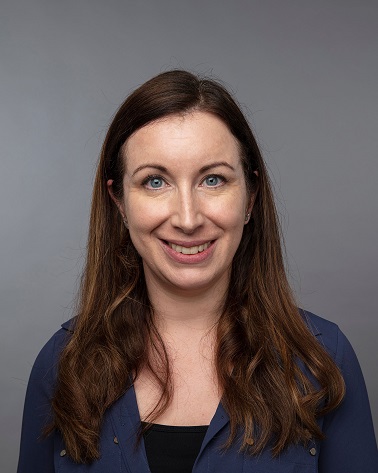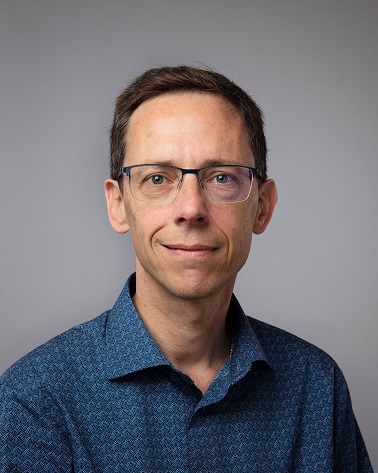Congratulations to Associate Professor Eve Hoggan and Professor Jaco van de Pol, who both have been selected as PIs for two new, large research projects funded by Digital Research Centre Denmark (DIREC). The projects will gather researchers from universities all over Denmark, as well as several industrial collaborators. Hoggan will lead the project REWORK, which will re-think and develop the future of hybrid work forms while van de Pol will lead the project Secure IoT systems (SIoT) that aims to increase the security in IoT systems and services.

There are a multitude of reasons to embrace remote and hybrid work. Climate concerns are increasing, borders are difficult to cross, work/life balance may be easier to attain, power distributions in society could potentially be redressed, to name a few. This means that the demand for systems that support hybrid work will increase significantly. The recent COVID-19 pandemic, and the attendant lockdown, demonstrated the potential benefits and possibilities of remote work practices, as well as the glaring deficiencies such practices bring. Zoom fatigue, resulting from high cognitive loads and intense amounts of eye contact, is just the tip of an uncomfortable iceberg where the problem of embodied presence remains a stubborn limitation.
The research project REWORK: The Futures of Hybrid Work, led by associate professor Eve Hoggan, aims to enrich digital technologies for hybrid work. The goal is to design and develop artefacts and processes to support organizations in exploring and preparing for successful collaboration in the future.
Remote and hybrid work will certainly be part of the future of most work practices, but what should these future work practices look like?
“I think we need to aim higher than merely fixing the systems we already have. We need to be bolder and consider a different future for our workplace if we want to secure successful collaboration. And that is wat REWORK is all about. We will focus on representation of embodiment and physical surroundings in a digital/analog setting, as this is one of the most important obstacles for successful hybrid work,” says associate professor Eve Hoggan.
Mads Troelsgaard, CEO and co-founder of SynergyXR, participates in the project to knowledge-share with the universities, but also because they want to make their AR/VR and Mixed Reality platform available for the project. For the past ten years, SynergyXR has developed AR/VR and Mixed Reality applications for some of the largest companies in the world
"There are a lot of things that appeal to us in this collaboration. We have a platform that is easy to go to and provides the opportunity to meet in a completely new way and thus changes the way companies collaborate at a distance. In addition, we would like to contribute with our many years of experience as specialists within the XR technology. The other way around, we hope to gain a lot of knowledge from the newest research. That we will be able to train the employees of the future to better understand the potential of XR technology is not bad either. Overall, we see a lot of 'wins' in this collaboration," says Mads Troelsgaard, CEO and co-founder of SynergyXR.
Follow the project on cs.au.dk/rework or on Twitter @ReWork_Direc
Read the announcment from DIREC in Danish and English.

IoT‐devices are blending into the infrastructure of both society and our personal life. Many of these devices run in uncontrolled, potentially hostile environments, which makes them vulnerable to security attacks. Moreover, with the increasing number of safety critical IoT devices, such as medical and industrial IoT devices, IoT security is a public safety issue. Thus, the need for security in these systems has even been recognized at governmental and legislative level, e.g., in the EU, US and UK, resulting in proposed legislation to enforce at least a minimum of security consideration in deployed IoT products.
Professor Jaco van de Pol will lead the project Secure IoT systems (SIoT), which aims to model security threats and countermeasures for IoT systems and services, to develop secure solutions, and to analyze residual security risks.
“Our goal with the SiOT project is to make it easier to design and certify secure IoT devices. Security and privacy are very important to many people and organizations, that use IoT devices for measurements in smart cities, natural environments, logistics chains, and in their private homes. Engineering IoT devices is very challenging, since they are physically small and must run on low power. Yet, they must perform accurate measurements and communicate with high efficiency. So how can one achieve security on top of that? We will provide new tools to model security threats, implement countermeasures, and analyze the final security risks”.
Jaco van de Pol continues: “I am really happy to be able to work with a team that includes both academic researchers and industrial experts. This will ensure that the project addresses the right questions, and that we can find new solutions by combining the expertise from several disciplines. And we can evaluate the solutions in an industrial setting.”
The strategy is to use algorithms from automata theory and game theory to automate risk analysis and security strategy synthesis. The implementation of the security policies will consider both technical as well as social aspects, in particular usability in organizations and training of people.
The purpose of the national research centre DIREC is to bring Denmark at the forefront of the latest digital technologies through world-class digital research. To meet the great demand for highly educated IT specialists, DIREC also works to expand the capacity within both research and education of computer scientists. The centre has a total budget of DKK 275 million and is supported by the Innovation Fund Denmark with DKK 100 million. The partnership consists of a unique collaboration across the computer science departments at Denmark’s eight universities and the Alexandra Institute.
The activities in DIREC are based on societal needs, where research is continuously translated into value-creating solutions in collaboration with the business community and the public sector. The projects operate across industries with focus on artificial intelligence, Internet of Things, algorithms and cybersecurity among others.